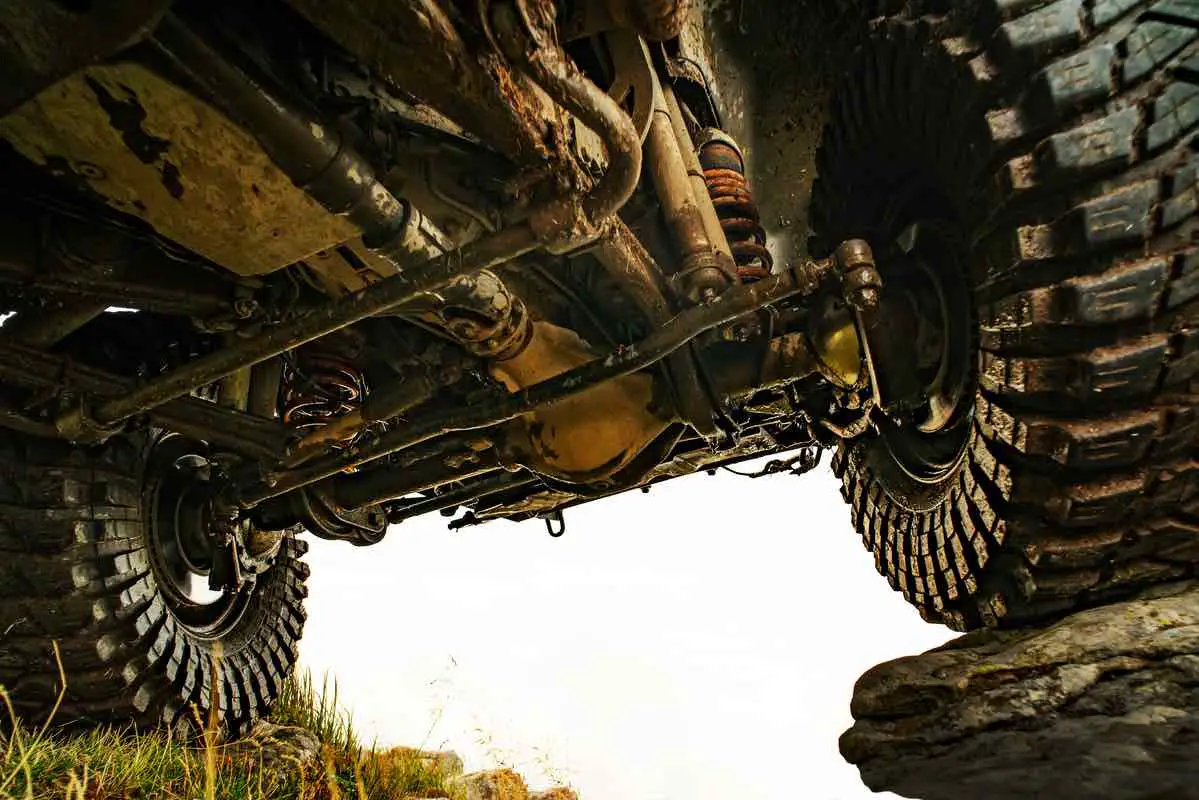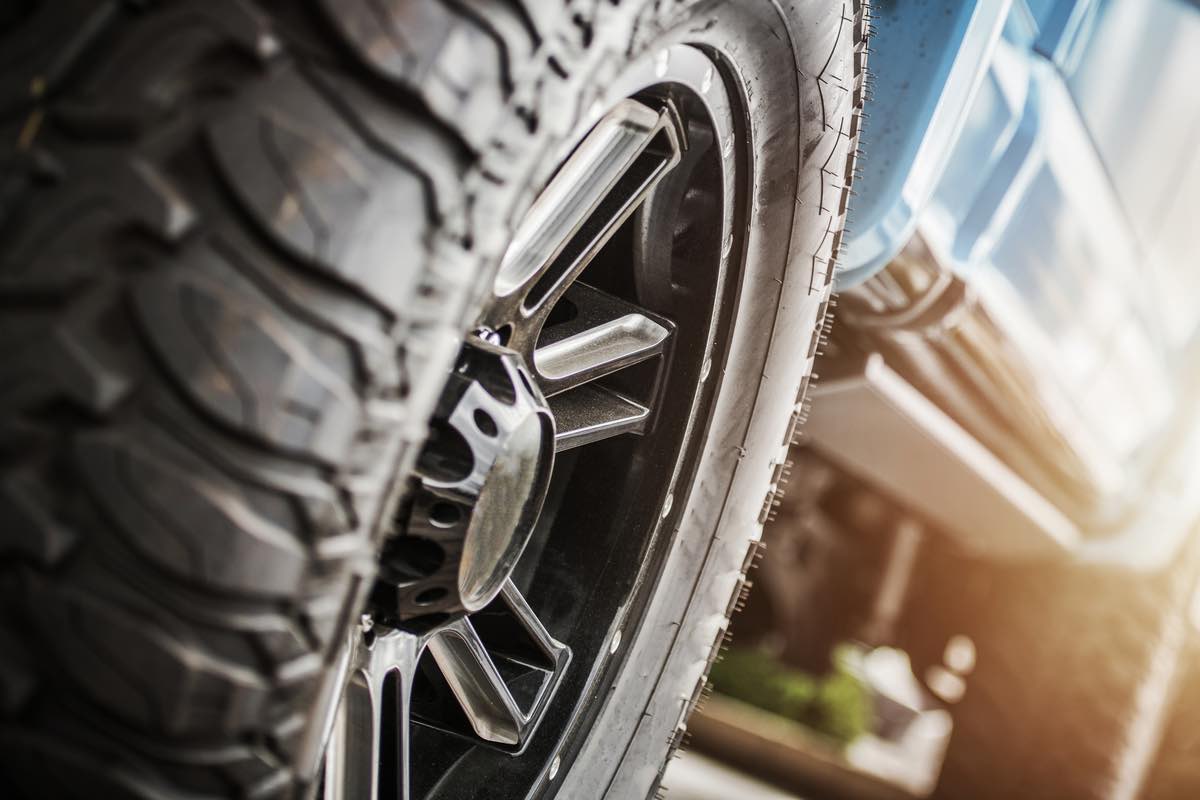If you just got a new set of off-road tires and are wondering about their longevity, you’re right to worry. Off-road tires are made for just that, off-roading.
Off-road tires will wear down faster than standard street tires when driven on pavement at highway speed for extended periods. The off-road tires are not made for the pavement nor for high-speed performance. The tires will get ripped apart by the pavement over time.
In the paragraphs below, I’ll explain why off-road tires are unsuitable for extended pavement use. I’ll also expound on why the tires break down and provide a few alternatives to off-road tires if you drive on pavement more than off-road.

Why the Pavement Is Not Good for Off-Road Tires
There are two significant issues with using off-road tires on pavement; heat and speed. Pavement tends to be much hotter than anything you would be driving through when off-roading. Driving on the hot pavement will heat up your tires quickly.
Speed is also a reason why off road tires and pavement don’t mix. Big knobby tires designed for off-roading are not built to carry a vehicle at high speeds for long distances. The tires will make loud noises while you drive, and if you drive for an exceptionally long time, you’ll be able to see some of the wear from just one extensive trip.
In addition to the loud noise, the tires will make your vehicle less fuel efficient. Off road tires can cause a three to five percent drop in average MPG. This drop in fuel economy occurs because the tires don’t fully contact the pavement. Only the knobs of the tire do.
The fact that only the knobs of the tire contact the pavement significantly affects safety as well. Your vehicle will be fine in the snow with big off-road tires, but on pavement, rain could be very problematic.
If your vehicle has a lot of torque and you have off road tires, expect your tires to spin if you drive in the rain. The lack of contact with the street causes the tires to lose the little bit of grip they have. Off-road tires are thus hazardous on the pavement when it rains.
This effect is magnified in summer when the concrete lies baking in the sun all day. If possible, avoid using off-road tires on the street during summer. That is unless you are okay with replacing your off-road tires much sooner than you anticipated.
Why Do Off-Road Tires Break Down?
Off-road tires are fundamentally different from highway tires and even all-terrain tires. The tires are made of a completely different compound to help them perform better in off road conditions. This specialization of even the materials used to make off road tires is why they wear down quickly on the street.
Off-road tires are made of a much softer rubber than other tires. The softer material allows the tire to move and flex more to better conform to surfaces and have grip when off-road. While this is excellent when you’re out in the woods on a trail, the soft conforming rubber is not ideal on the highway at full speed.
Traveling at highway speeds with chunky off road tires heats them up faster. The heat begins to break down the rubber faster than anything. The heat combined with the rigid pavement provides an environment where the tire gets weakened by the heat and is constantly shaved down by the pavement.
Some types of off road tires called bias ply tires have their layers in an X pattern rather than linear. These tires also have the characteristic soft rubber of other off road tires and attract an astronomical amount of heat when driven on pavement.
Absorbing all of the heat of the pavement weakens these tires pretty quickly. The soft rubber starts to break down, and the tires soon become unusable due to baldness. The tread wears away like a pencil’s eraser.
Alternatives to Off-Road Tires
If you want to preserve your existing off-road tires or you are deciding whether to buy off-road tires, there are options other than the specialized knobby off road tires. Thankfully, the science of tires has come a very long way.
An important thing to consider is how much time you spend off-roading compared to the time you spend in the woods or on the trails. This is because buying a set of off-road tires when you do most of your driving on the pavement is an inefficient choice.
If you only spend a small amount of time off-roading and your off-road tires won’t get much use, it might be better to just get a single set of all-terrain tires. While the all-terrain tires may not have a tread that is as aggressive and adept at gripping as the actual off road tires, they are still capable of holding their own on the trail. They’ll also be much better to use on the pavement, including when driving at highway speeds.
Another option is to have one set of off road tires and one set of highway tires. This is, of course, if you can afford it. Unfortunately, you’ll need to switch out the wheels each time you intend to go off-roading which can be a burdensome chore.
However, having all-terrain tires gives you the confidence of always having a good grip on all surfaces – without having to switch out the wheels on your vehicle whenever you want to go off-roading. It’s also an excellent way to save time and money since the tires will last longer.

Final Thoughts
Off road tires can have a long life, possibly an even longer life than highway tires. However, this will only happen if you take care of them and use them for the task they were designed for. If you use your off-road tires on the road, they’ll wear down faster.
The tires wear down faster because they are made with softer material. This material absorbs heat faster than tires designed for the highway. The abrasive pavement heats and breaks down the soft material.
